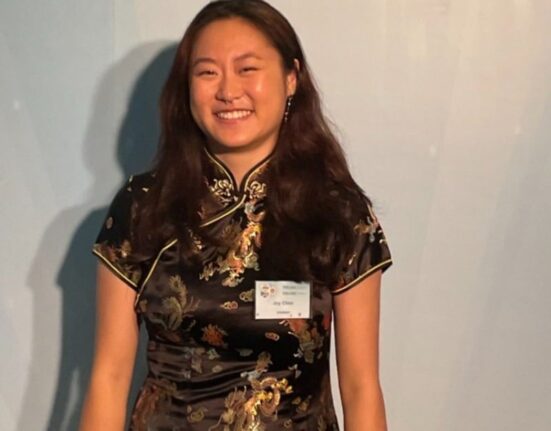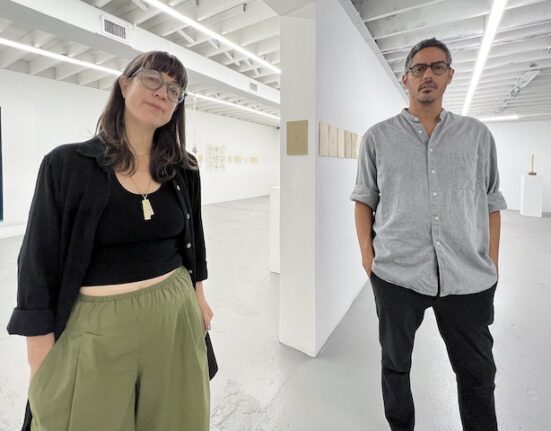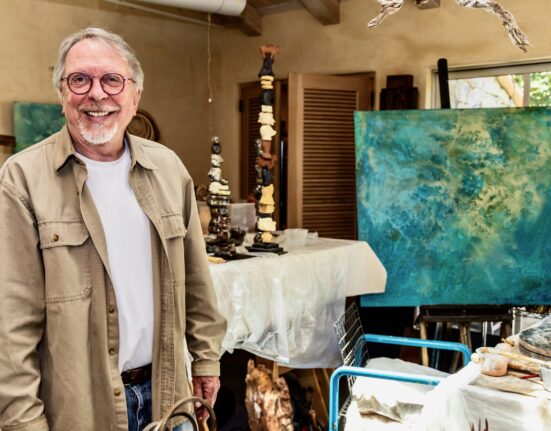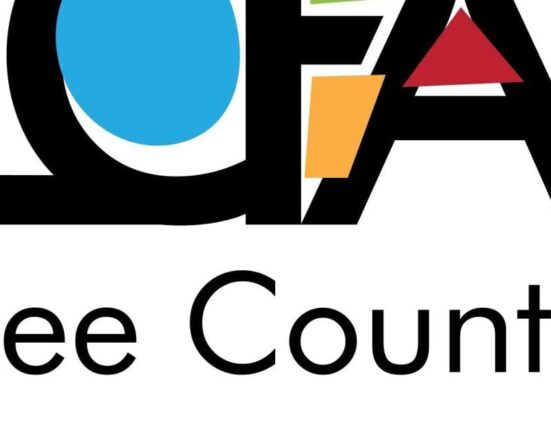Lee Price couldn’t figure out why his Cal U drawing and painting instructor didn’t seem to like him, at least not until the end of the semester.
“He said he was hard on me because he saw potential,” said Price, 41, of Penn Hills.
Price ended up going into the information technology field, taking a nearly 15-year break from creating art. But he started back up in 2019, and his piece paying tribute to Pittsburgh jazz legend Ahmad Jamal has taken the top visual art spot in “Envisioning a Just Pittsburgh,” an inclusive call for artists across Southwestern Pennsylvania and a collaboration between the Carnegie Museums of Pittsburgh, Carnegie Library of Pittsburgh, the University of Pittsburgh, 1Hood Media and the August Wilson African American Cultural Center.
Winners were chosen in a variety of categories including the literary, performance, interdisciplinary and youth arts. They also will participate in an artist-in-residence program hosted by the Carnegie Library of Pittsburgh, and a series of contest exhibitions starting with the winners will take place Feb. 2-29 at the Carnegie Museum of Natural History.
“We recognize that our endeavors to cultivate a just and equitable city must be more intentional, intersectional and reflective of our evolving society, and this call for art represents the thirst for change that exists among Pittsburgh’s creative community,” said Gina Winstead, the inaugural vice president for Inclusion, Diversity, Equity and Accessibility for Carnegie Museums of Pittsburgh.
Price spoke with TribLive about growing up in Uniontown, discovering and then rediscovering his passion for art. This interview has been edited for length.
Q: How long have you been creating art?
A: I’ve been drawing since about first grade. I was always a fan of cartoons and comics, and I can remember sitting at my mom’s dining room table with the latest Sonic the Hedgehog game case and drawing the exact image just by looking at it. I fell in love with that. I took art classes all through high school, got into doing expressive self-portraits with a street-art vibe, and I had a really great art teacher, (Beverly) DeMotte, at Uniontown High School who was very encouraging.
I got through three years of art school at Cal U and unfortunately dropped out before being able to get licensed to teach.
Q: Your winning piece, “Ahmad Jamal’s Dream,” is a multimedia work — is that your preferred medium?
A: Lately, part of my process has been to incorporate different media. For instance, I use pencil, ink, pastel, acrylic pint, spray paint, marker and paint pen. It’s something I’ve been experimenting with, but I’m most comfortable and in my element doing pencil drawing. I think that’s because it’s how I started as a kid. I’m looking to get into more oil painting this spring and summer, and I also really like the idea of the photo collage, which is something new for me — but I find it helps bring history to historical-themed pieces.
Q: There are collage elements in your piece as well — photos of different parts of Pittsburgh incorporated into Jamal’s suit. How did you arrive at that decision?
A: After reading an article (about redevelopment in the Lower Hill District), I followed up on some of the photo sources which led me to Heinz History Center’s website and the Allegheny Conference on Community Development Photographs archive. I was captivated by the old black-and-white photos. Working Downtown for the last 13 to 14 years of my IT career, it was wild to see how much has changed and what it used to look like Downtown and within the surrounding area.
I knew I wanted to incorporate these photos but wasn’t sure how at first. Then, I thought I would actually draw a few of these as backgrounds to the piece in paint. But I decided to cut the photo prints into shapes based on pieces of his suit. There was good real estate in the suit, and I was then able to fit some nearly full images in the background.
I didn’t think too hard about the placement. I just figured I would accentuate some of the lines in the suit with the photo pieces, and then I would paint over the top to create a blending of sorts.
Q: Why did you choose Ahmad Jamal as your subject?
A: I had been working on a series of famous figures, rap and jazz musicians, and had been listening to some Ahmad Jamal. I was inspired by one of his album covers. The pose in the piece is inspired by his pose on the cover, looking upward while at the piano. I really liked that expression, and it struck me as if he were daydreaming while playing, which is when I usually get most of my ideas for pieces.
He would have been a young adult during the ’50s and ’60s and heavily influenced by (the city’s) transformation at that time. Also, being that he passed this year in April, the same month as my late father, I thought it was a fitting tribute to Ahmad and the jazz history of the Lower Hill.
Patrick Varine is a TribLive reporter covering Delmont, Export and Murrysville. He is a Western Pennsylvania native and joined the Trib in 2010 after working as a reporter and editor with the former Dover Post Co. in Delaware. He can be reached at pvarine@triblive.com.
Categories:
AandE | Local | Art & Museums | Oakland | Penn Hills Progress | Pittsburgh






